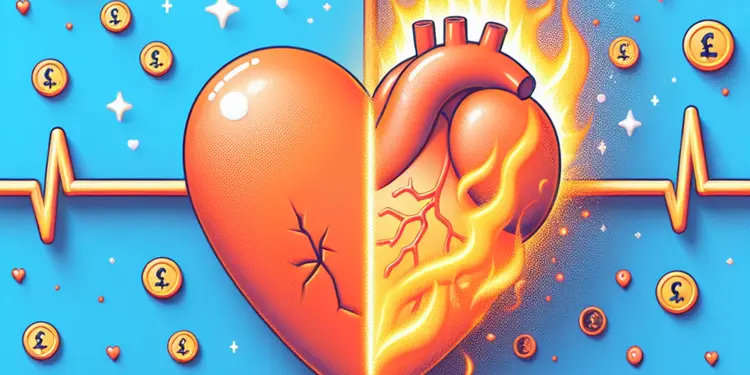
Find Help
More Items From Ergsy search
-
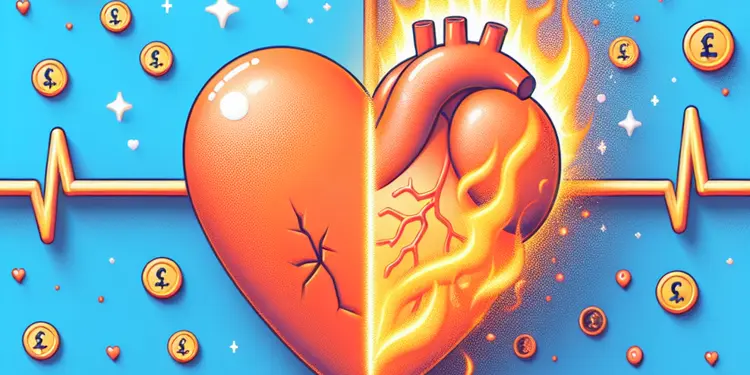
How can I differentiate between heartburn and a heart attack?
Relevance: 100%
-

Heart Attack Symptoms - Help Us Help You | NHS
Relevance: 56%
-

Heart Attack Symptoms - Peter Dale (Tubes) | NHS
Relevance: 49%
-
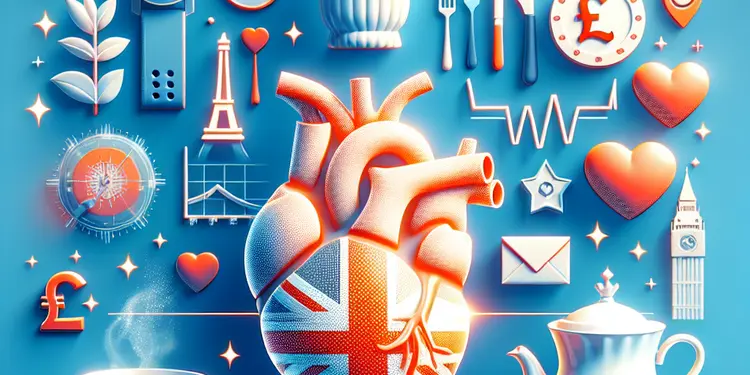
Is it possible to have a heart attack without chest pain?
Relevance: 47%
-
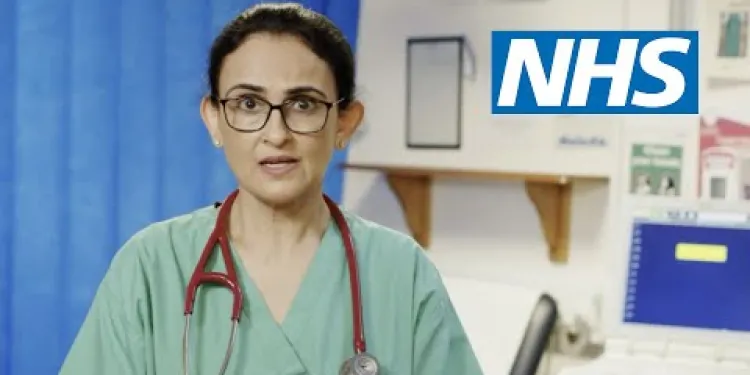
Heart Attack Stories | NHS
Relevance: 47%
-
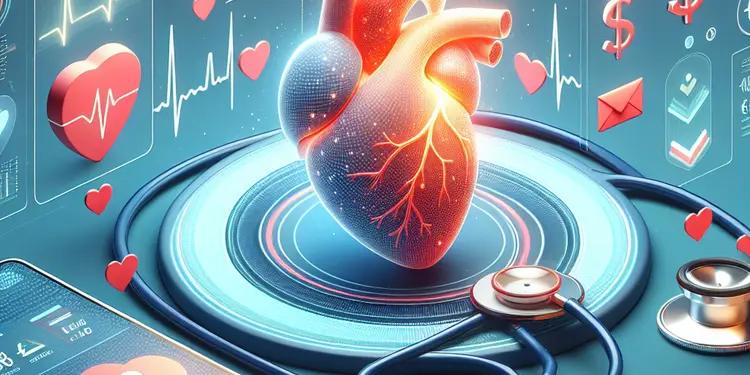
Is it possible to prevent a heart attack?
Relevance: 47%
-
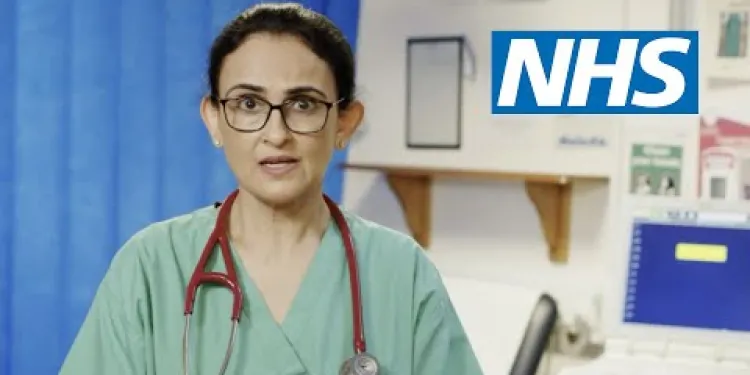
Heart Attack Stories | NHS
Relevance: 46%
-
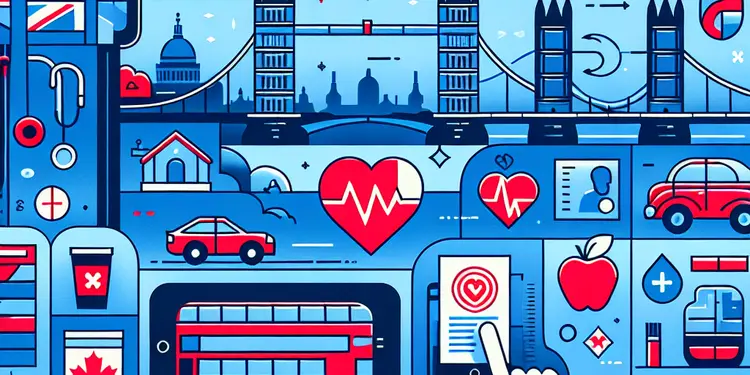
What are the risk factors for a heart attack?
Relevance: 45%
-
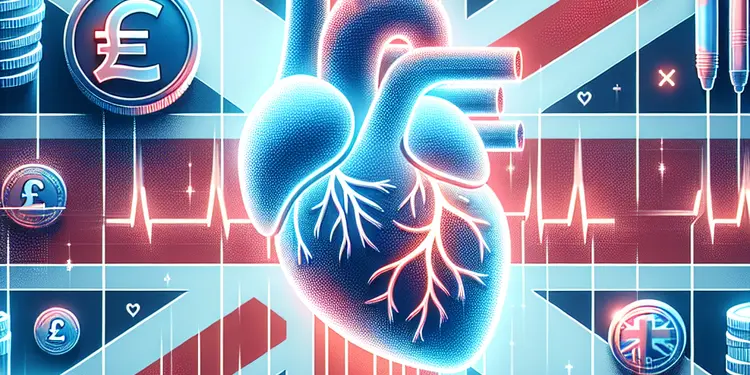
What are the long-term effects of a heart attack?
Relevance: 44%
-
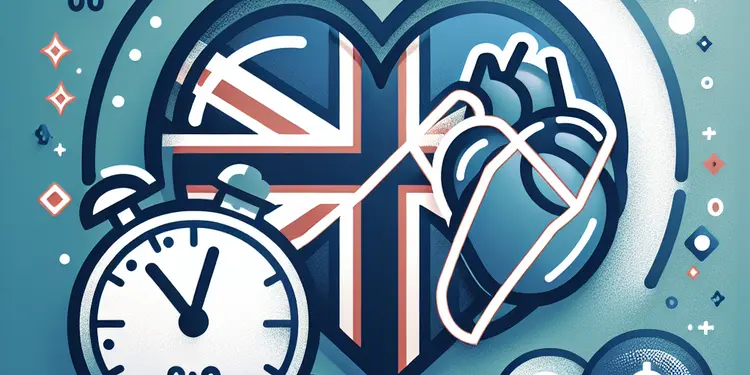
How long do heart attack symptoms last?
Relevance: 43%
-

Are heart attack symptoms different for people with diabetes?
Relevance: 43%
-
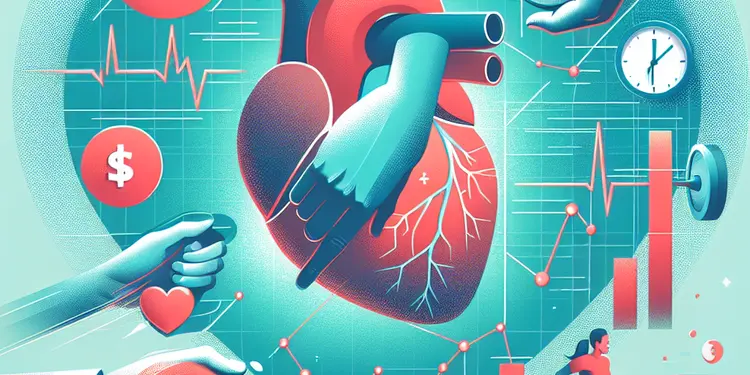
Can physical exertion trigger a heart attack?
Relevance: 43%
-
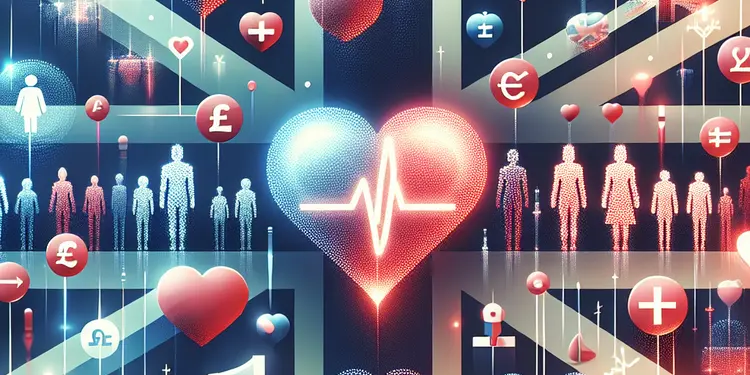
Can heart attack symptoms vary by age?
Relevance: 43%
-
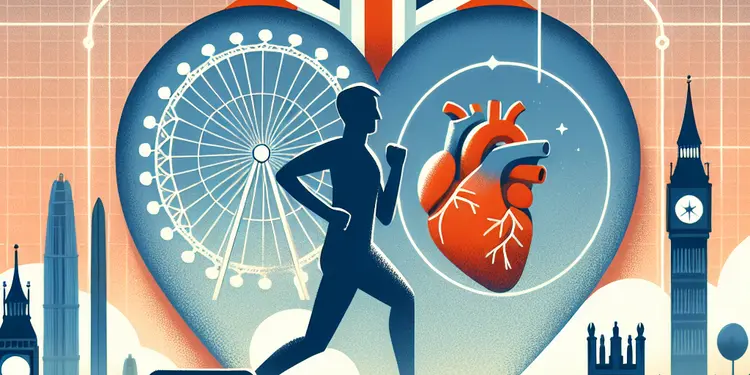
What should I do if I'm experiencing heart attack symptoms?
Relevance: 42%
-
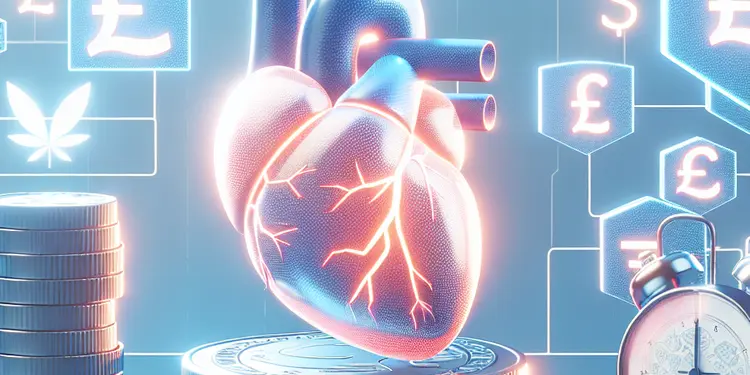
How do beta-blockers contribute to heart attack prevention?
Relevance: 42%
-
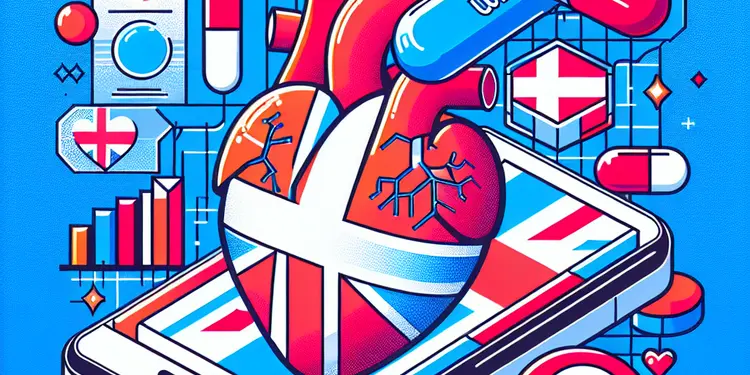
Do calcium channel blockers help in preventing heart attacks?
Relevance: 40%
-

What drugs are commonly prescribed to reduce the risk of heart attacks?
Relevance: 40%
-
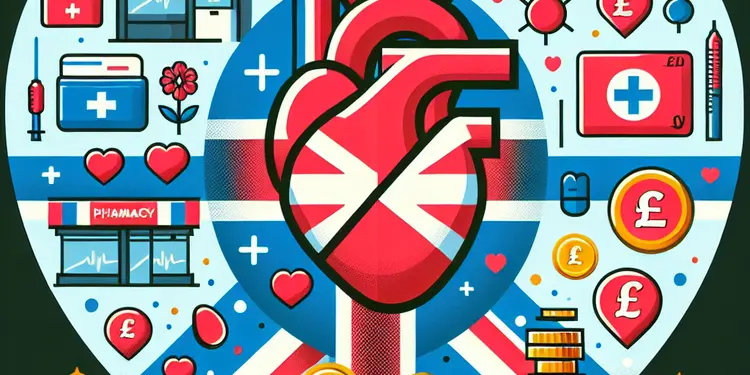
Do over-the-counter medications help in preventing heart attacks and strokes?
Relevance: 40%
-
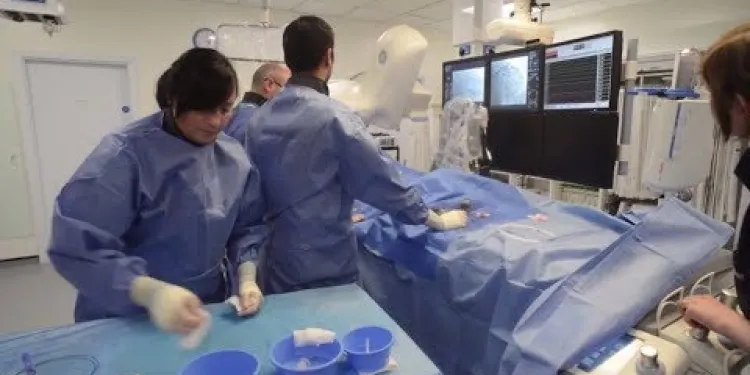
Heart attack care - Raigmore Hospital Inverness, NHS Highland
Relevance: 39%
-
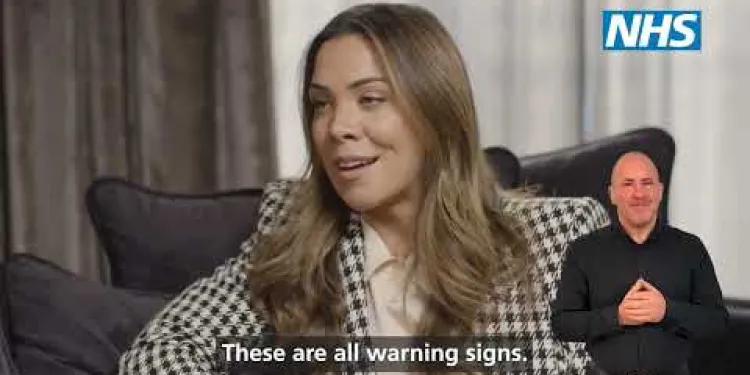
Heart Attack Symptoms - Peter Dale (Tubes) | NHS - BSL version
Relevance: 39%
-

Can women have different heart attack symptoms than men?
Relevance: 39%
-
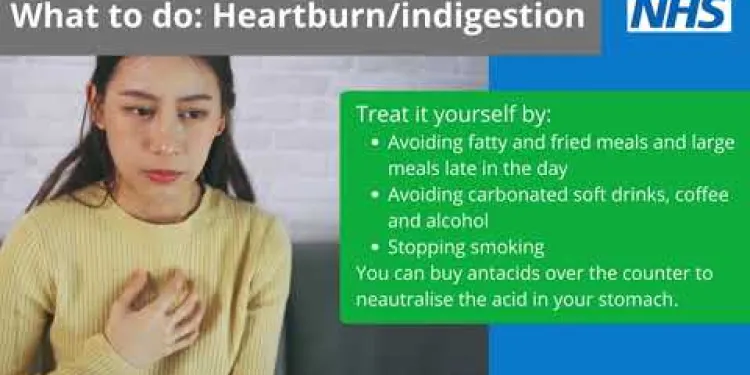
What to do if you have heartburn or indigestion
Relevance: 39%
-
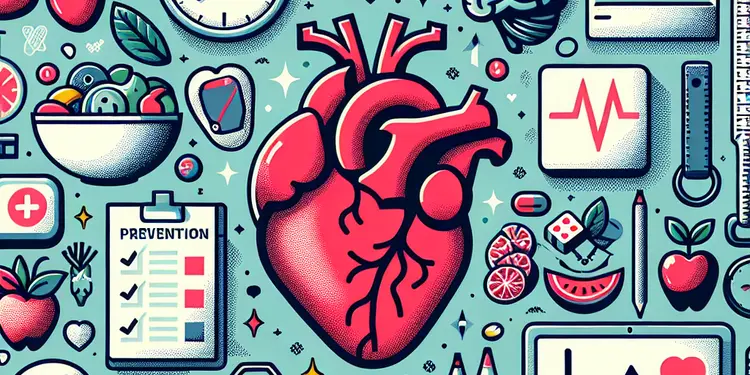
What is the role of lifestyle modification in heart attack and stroke prevention?
Relevance: 39%
-
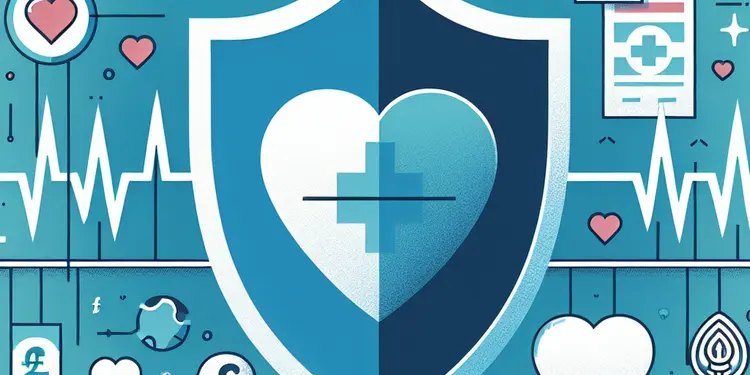
When should one start taking medication for heart attack prevention?
Relevance: 39%
-

Do all patients need medication to prevent heart attacks and strokes?
Relevance: 39%
-
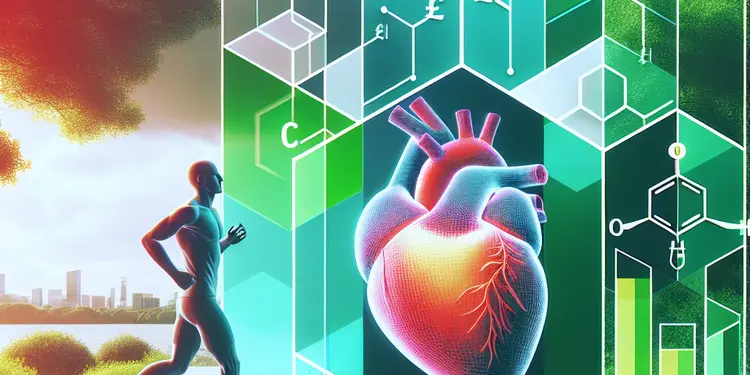
What is the role of PCSK9 inhibitors in heart attack prevention?
Relevance: 37%
-

Can diabetes medications also help reduce heart attack risk?
Relevance: 37%
-
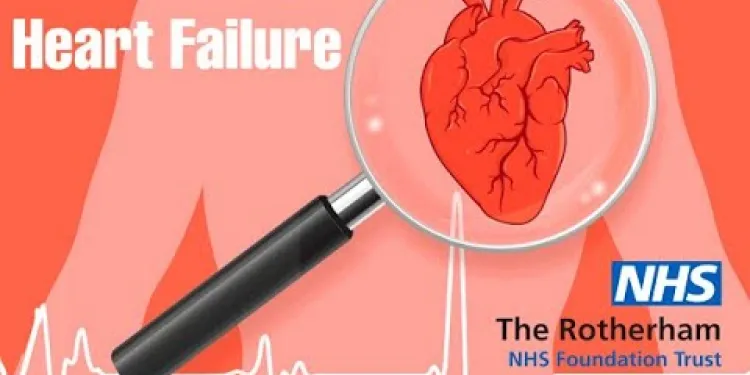
Heart Failure : When the heart becomes stiff?
Relevance: 30%
-
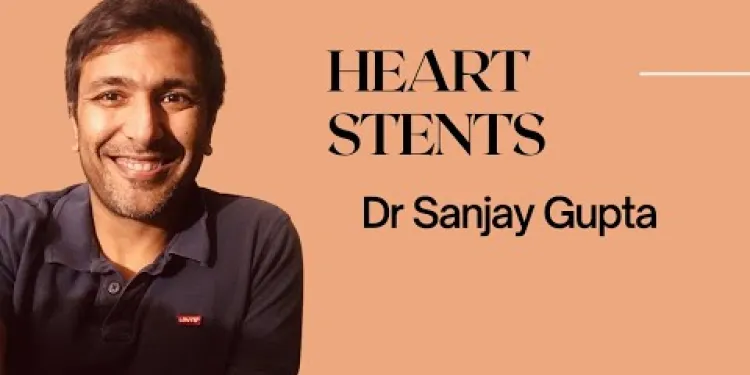
Heart stents
Relevance: 29%
-
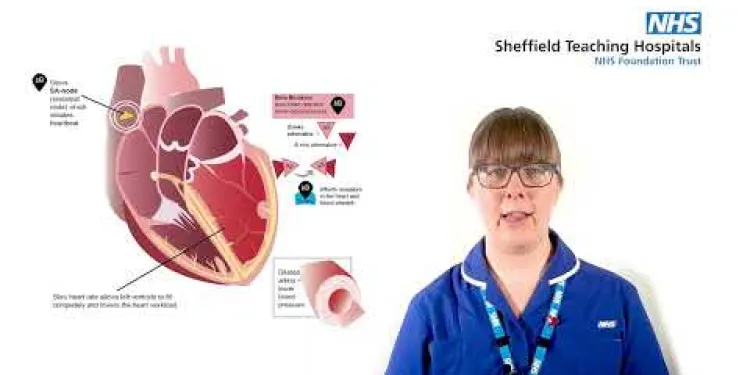
Medicines of the heart
Relevance: 29%
-

Heart Failure : The normal heart
Relevance: 29%
-
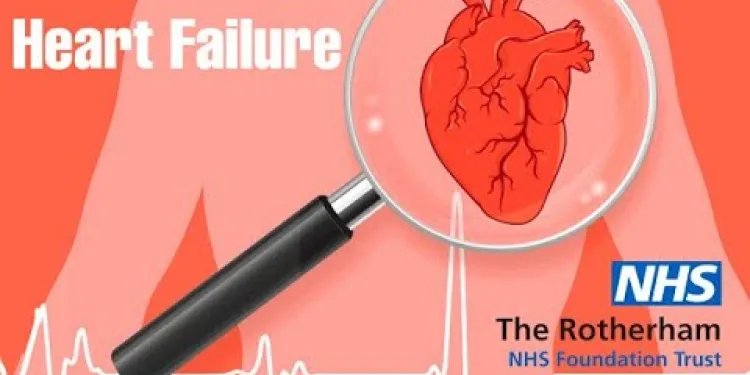
Heart Failure : What is heart failure?
Relevance: 28%
-
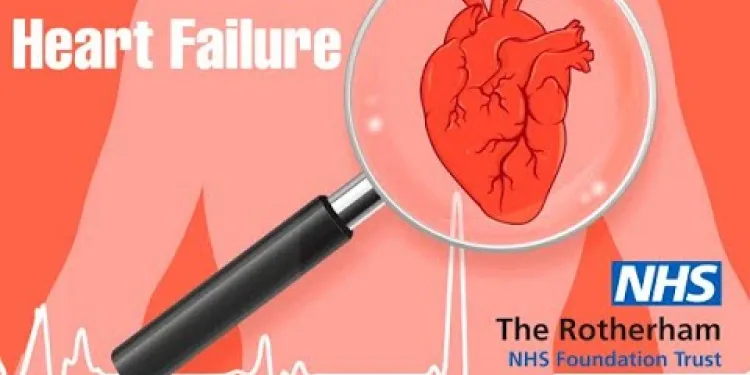
Heart Failure : Heart failure that cannot pump
Relevance: 28%
-
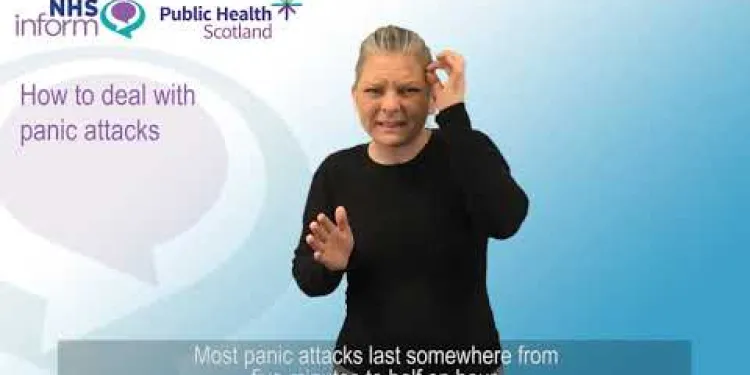
BSL - How to deal with panic attacks
Relevance: 28%
-
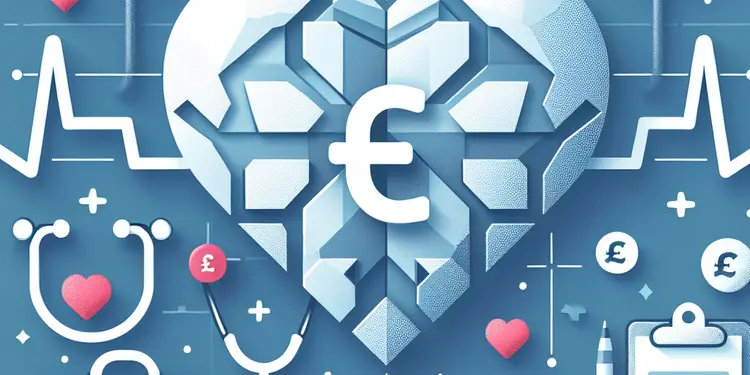
What causes heart failure?
Relevance: 27%
-
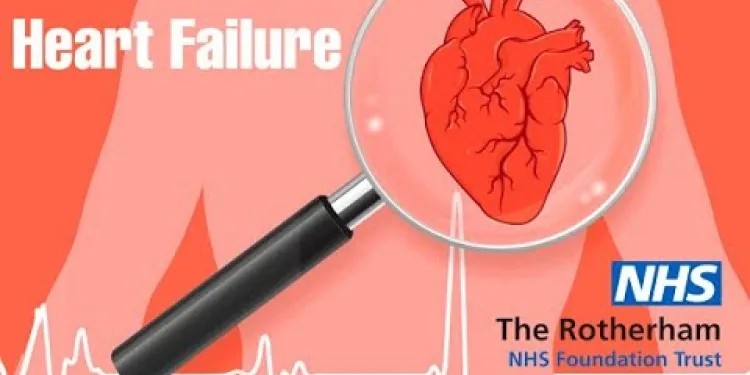
Heart Failure : Symptoms of heart failure
Relevance: 27%
-

Are there any natural supplements that can help prevent heart attacks?
Relevance: 27%
-

Heart failure introduction
Relevance: 26%
-
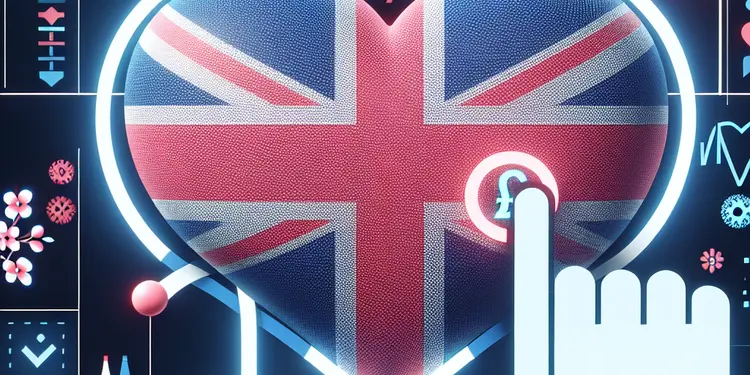
Are there different types of heart failure?
Relevance: 26%
-
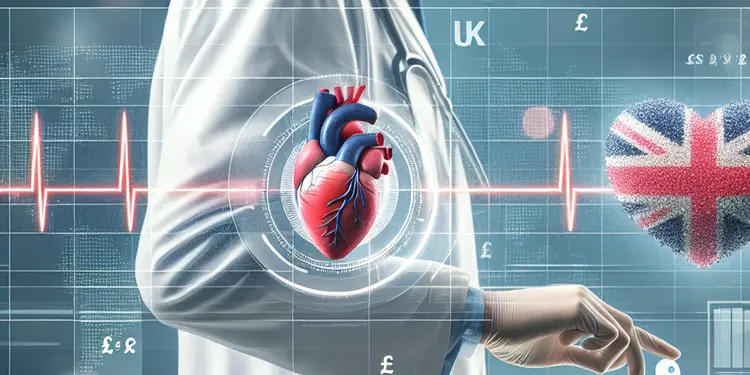
How is heart failure diagnosed?
Relevance: 26%
Understanding Heartburn
Heartburn is a common condition experienced by many individuals, often associated with a burning sensation in the chest. This sensation occurs when the stomach acid flows back into the oesophagus, causing irritation. The pain from heartburn is typically located behind the breastbone and may extend to the throat. Heartburn can often be managed with lifestyle changes and over-the-counter medications available in the UK.
Identifying a Heart Attack
A heart attack, on the other hand, is a medical emergency that occurs when the blood supply to part of the heart is blocked, usually by a blood clot. This can result in damage to the heart muscle and requires immediate medical attention. The symptoms of a heart attack can be more severe and widespread than those of heartburn.
Key Differences in Symptoms
While heartburn and heart attacks can both cause chest pain, the nature and accompanying symptoms can help differentiate between the two. Heartburn pain is more likely to follow a meal, especially if it was large or spicy. This pain usually eases with antacids or standing up.
Heart attack pain may feel like squeezing, pressure, or a tightness in the chest, which may not change significantly with different body positions. In addition to chest pain, a heart attack can cause symptoms such as shortness of breath, nausea, vomiting, cold sweats, dizziness, and pain radiating to the arms, neck, jaw, or back.
When to Seek Medical Attention
It is crucial to seek immediate medical assistance if you suspect a heart attack. If you experience intense chest pain, especially if accompanied by other symptoms like shortness of breath or arm pain, call 999 immediately. Fast response is essential in minimizing heart damage.
For heartburn that occurs frequently or severely impacts your daily life, it is advisable to consult a healthcare professional. Chronic heartburn may indicate gastroesophageal reflux disease (GERD), which requires management to prevent complications.
Conclusion
While heartburn can be uncomfortable, understanding the distinct differences between it and the more severe symptoms of a heart attack is important for your health. Knowing when to take over-the-counter remedies and when to seek urgent medical help can make a significant difference in outcomes. Always err on the side of caution and get professional advice if uncertain.
Understanding Heartburn
Heartburn is a feeling of burning in your chest. It happens when acid from the stomach comes back up into the tube that goes to your mouth. The pain is usually in the chest but can go up to your throat. You can often feel better by changing what you eat or taking medicine you can buy without a prescription.
Identifying a Heart Attack
A heart attack happens when blood can't get to the heart. This is very serious and needs a doctor quickly. It can hurt the heart muscle. A heart attack feels much worse than heartburn.
Key Differences in Symptoms
Both heartburn and heart attack can cause chest pain, but they feel different. Heartburn often happens after eating. The pain can get better with medicine or by standing up.
A heart attack feels like squeezing or tightness in the chest and doesn't change with body position. It can also cause trouble breathing, feeling sick, cold sweats, feeling dizzy, and pain spreading to your arms, neck, jaw, or back.
When to Seek Medical Attention
If you think you have a heart attack, get help right away. Call 999 if you have severe chest pain with trouble breathing or arm pain. Quick help can protect your heart.
If heartburn happens a lot or bothers you too much, talk to a doctor. It may be a sign of a bigger problem called GERD, which needs attention.
Conclusion
Heartburn can hurt but is different from a heart attack. Knowing the difference can help you stay healthy. Use medicine when needed and seek urgent help if you think it might be a heart attack. It's always smart to ask a doctor if you're not sure.
Frequently Asked Questions
What are the common symptoms of heartburn?
Heartburn typically involves a burning sensation in the chest, a sour taste in the mouth, and discomfort that often occurs after eating or when lying down.
What are the common symptoms of a heart attack?
Symptoms of a heart attack may include chest pain or pressure, pain radiating to the arm, neck, or back, shortness of breath, nausea, sweating, and lightheadedness.
How long does heartburn usually last?
Heartburn can last for several minutes to a few hours, but it usually subsides after taking antacids or when the triggering factors are addressed.
How long can heart attack symptoms last?
Heart attack symptoms can last for a few minutes or longer. Persistent or severe symptoms require immediate medical attention.
Can heartburn cause jaw or arm pain?
Heartburn typically does not cause jaw or arm pain. These symptoms are more indicative of a heart attack.
Can a heart attack cause a burning sensation in the chest?
Yes, a heart attack can cause a burning sensation in the chest, making it difficult to distinguish from heartburn without further evaluation.
What is the primary cause of heartburn?
Heartburn is primarily caused by stomach acid refluxing into the esophagus, often due to a hiatal hernia, obesity, or certain foods and drinks.
What causes a heart attack?
A heart attack occurs when the blood supply to a part of the heart is blocked, often due to a blood clot in a coronary artery.
Can antacids help with heart attack symptoms?
No, antacids are not effective for heart attack symptoms. If a heart attack is suspected, seek emergency medical help immediately.
Can stress cause both heartburn and heart attacks?
Yes, stress can contribute to heartburn by increasing stomach acid production and can also trigger heart attacks, especially in those with underlying heart conditions.
Is shortness of breath more common with heartburn or a heart attack?
Shortness of breath is more commonly associated with a heart attack, though severe heartburn can also cause difficulty breathing.
When should I seek medical attention for chest pain?
Seek immediate medical attention for chest pain if it is severe, accompanied by shortness of breath, dizziness, sweating, or if you suspect a heart attack.
Can heartburn be mistaken for a heart attack in women?
Yes, women may experience atypical heart attack symptoms, such as indigestion and heartburn-like sensations, making differentiation challenging.
Are heartburn and heart attacks linked to diet?
Yes, diet can influence both. Fatty or spicy foods can trigger heartburn, while a diet high in cholesterol and saturated fats can increase heart attack risk.
Can lifestyle changes help prevent heartburn and heart attacks?
Yes, maintaining a healthy diet, exercising, avoiding trigger foods for heartburn, and managing stress can reduce the risk of both conditions.
Is chest pain after meals more likely to be heartburn?
Yes, chest pain after meals is more suggestive of heartburn, especially if related to specific foods or positions.
Does heartburn pain improve with position changes?
Yes, heartburn pain often worsens when lying down and improves with sitting up or standing.
Can a person have heartburn and a heart attack simultaneously?
While possible, it is rare. However, overlapping symptoms can complicate diagnosis, so it is essential to seek medical advice if unsure.
How does the onset of symptoms differ between heartburn and a heart attack?
Heartburn often starts shortly after eating, while heart attack symptoms can come on more suddenly and at any time.
Can heartburn cause nausea?
Yes, heartburn can cause nausea, particularly when severe. However, nausea accompanied by chest pain should be carefully evaluated for heart attack risk.
What happens when you have heartburn?
Heartburn feels like a burning pain in your chest. It can happen after you eat or when you lie down.
You might taste something sour in your mouth.
Your chest might feel tight or hurt.
If you have these feelings, it might be heartburn.
Tools that can help:
- Ask someone to read with you.
- Use a dictionary to look up hard words.
- Watch videos about heartburn for more help.
Heartburn feels like a burning in your chest. It can also give you a sour taste in your mouth. It often happens after you eat or when you lie down.
What are the signs that someone is having a heart attack?
Here is a simple list of signs that might happen if a person is having a heart attack:
- Strong pain in the chest or a tight feeling.
- Pain that moves to the arms, neck, or back.
- Feeling dizzy or like you might faint.
- Feeling sick in the stomach or throwing up.
- Hard to breathe.
- Feeling very tired all of a sudden.
- Cold sweat.
If you or someone you know has these signs, call for help right away!
It can help to talk to a doctor or nurse about heart attacks. They have a lot of info and can help answer questions.
Using pictures or watching videos about heart health might make it easier to understand.
If someone has a heart attack, they might feel:
- Pain or pressure in their chest.
- Pain that goes to their arm, neck, or back.
- Hard to breathe.
- Feeling sick.
- Lots of sweating.
- Dizzy or like they might faint.
It's important to tell someone and get help if you feel these things. A support person can help you find what to do next.
How long does heartburn usually last?
Heartburn is a burning feeling in your chest. It can last for a few minutes or a few hours. Most of the time, it goes away after a few hours. If it does not stop, talk to a doctor.
Tips to help with heartburn:
- Drink water slowly.
- Eat small meals.
- Avoid spicy food.
- Try to sit up straight.
If you have heartburn often, ask an adult to help you. You can also use apps that read text out loud.
Heartburn can hurt for a few minutes or a few hours. It usually stops after you take medicine like antacids or when you fix what caused it.
How long do heart attack signs last?
Heart attack signs can last for a few minutes or a few hours.
If you think you or someone else is having a heart attack, call for help right away.
Use simple tools like alarms or reminders on your phone to help you remember what to do in an emergency.
Signs of a heart attack can happen for a few minutes or more. If the signs don't go away or are very bad, get help from a doctor right away.
Can heartburn make your jaw or arm hurt?
Heartburn can sometimes make your tummy hurt. But it can also make you feel pain in other places like your jaw or arm.
If you feel this way, it's important to tell a grown-up or ask a doctor. They can help you feel better.
You can try these things if you have heartburn:
- Sit up straight.
- Drink some water.
- Avoid foods that upset your tummy, like spicy or fatty foods.
Remember, it's always good to ask for help if you feel worried or in pain.
Heartburn usually does not make your jaw or arm hurt. If your jaw or arm hurts, it could be a sign of a heart attack.
If you feel these pains, get help from a doctor quickly.
To help understand this, you can use tools like picture charts or listen to an audio version of the information.
Can a heart attack make your chest feel like it's burning?
A heart attack can make your chest feel like it's burning. This can be easy to mix up with heartburn. It's important to get a doctor to check it out to know for sure.
What makes heartburn happen?
Heartburn happens when stomach acid goes up into the food pipe. This causes a burning feeling. To help you read better, you can: - **Read slowly**: Take your time. - **Use a ruler or finger**: Guide the words. - **Ask for help**: Talk to someone if you need help understanding. - **Draw pictures**: Make pictures to show what you read.Heartburn happens when stomach acid goes up into the tube that carries food to your stomach. This is usually because of a problem called a hiatal hernia, being very overweight, or eating certain foods and drinks.
What makes a heart attack happen?
A heart attack is when blood can't get to the heart. The heart needs blood to work.
This happens when something blocks the way. It is like a road being blocked by a big rock.
The blocked road is usually because of fat, sticky stuff in the blood called plaque.
To help understand, use pictures or videos that show how blood moves in the body.
You can ask a helper to explain more if you like.
A heart attack happens when blood can't get to part of the heart. This is usually because a blood clot is blocking an artery in the heart.
Can you use antacids for heart attack signs?
Antacids are medicines that help with heartburn or an upset tummy.
But they do not help if you have heart attack signs.
If someone has signs like:
- bad pain in the chest
- trouble breathing
- feeling very dizzy
- feeling very sick
Call a doctor or 999 right away.
Helpful tip: Learn about heart attack signs. Use pictures or videos if reading words is hard.
No, antacids do not help if someone is having a heart attack. If you think someone is having a heart attack, call for emergency help right away.
Can stress make your stomach burn and hurt your heart?
Yes, feeling stressed can give you heartburn. This is because stress makes your stomach produce more acid. Stress can also cause heart attacks, especially if a person already has heart problems.
Here are some tools and tricks that can help:
- Take deep breaths to feel calm.
- Try doing some light exercise, like walking.
- Talk to someone about your feelings.
Do you get shortness of breath more with heartburn or a heart attack?
Shortness of breath means it is hard to breathe.
Heartburn can cause a burning feeling in your chest.
A heart attack is when your heart is having big problems.
It is more common to get shortness of breath with a heart attack. That means you should see a doctor.
Helpful tools:
- Pictures to show what heartburn and a heart attack look like.
- Ask someone to read this with you if it is hard to understand.
Having trouble breathing can be a sign of a heart attack. But sometimes, bad heartburn can also make it hard to breathe.
When should I see a doctor for chest pain?
If your chest hurts, when should you go to the doctor?
- If the pain is very strong.
- If the pain does not go away.
- If the pain makes it hard to breathe.
- If the pain goes to your arm, neck, or back.
- If you feel dizzy or sick.
It's better to be safe. Ask someone to help you get medical care. You can call a doctor or go to a hospital. Do not wait if you are scared about your pain.
If your chest hurts a lot, and you also find it hard to breathe, feel dizzy, or sweaty, you should see a doctor right away. Go to a doctor quickly if you think you might be having a heart attack.
Can heartburn feel like a heart attack in women?
Sometimes, heartburn and a heart attack can feel the same. This happens to women, too. It is important to know the difference.
If you feel a sharp pain or tightness in your chest, it could be heartburn. It might also be a heart attack. Pay attention to other signs, like sweating, feeling sick, or being very tired. These signs might mean a heart attack.
If you are worried, talk to a doctor. They can help you know what is happening. Using a notebook to write down your symptoms can also help.
Yes, women can have different heart attack signs. They might feel like they have a bad tummy ache or heartburn. This can make it hard to tell if it's a heart attack.
Can what you eat cause heartburn or a heart attack?
Yes, what you eat can affect both heartburn and heart attacks. Eating foods that are fatty or spicy might give you heartburn. Eating too many foods high in cholesterol and saturated fats might make a heart attack more likely.
Can you change how you live to stop heartburn and heart attacks?
Some changes can help keep your heart healthy and stop heartburn:
- Eat healthy foods like fruits and veggies.
- Move your body, like walking or playing sports.
- Do not smoke.
- Try to be a healthy weight.
- Find ways to relax and not stress too much.
Tools to help:
- Ask a doctor for advice.
- Use apps to track your exercise and food.
- Join a group to stay motivated.
Yes, you can stay healthy by doing a few things:
- Eat good food.
- Exercise or play outside.
- Don't eat foods that make your tummy hurt.
- Stay calm and try not to worry too much.
These steps can help you feel better and keep you safe from getting sick.
Can chest pain after eating be heartburn?
Chest pain after eating might be heartburn. Heartburn feels like a burning in your chest. It can happen when stomach acid comes up into your throat.
If you have chest pain after eating, tell a grown-up or a doctor. They can help you feel better. You can also try eating slowly and not eating too much at once.
Using a picture diagram or asking someone to explain it in simple words might help you understand better.
After eating, if your chest hurts, it might be heartburn. This happens if you eat certain foods or sit in certain ways.
Can changing how you sit or lie help heartburn feel better?
Yes, heartburn can hurt more when you lie down. It feels better when you sit up or stand.
Can someone have heartburn and a heart attack at the same time?
Yes, it is possible for a person to have both heartburn and a heart attack at the same time.
Here is what each one means:
- Heartburn: This is a burning feeling in your chest. It happens when stomach acid comes up into your food pipe.
- Heart Attack: This is when the blood flow to the heart is blocked. It is very serious and needs help right away.
If you feel pain in your chest and are not sure if it is heartburn or a heart attack, it is important to see a doctor quickly. A heart attack is very dangerous.
Some tools that might help:
- Talk to a doctor or nurse if you feel unsure.
- Use pictures or photos to understand better.
- Ask a friend or family member to help you read or explain this information.
It can happen, but it's not common. Sometimes, the signs can look alike, making it hard to tell what's wrong. If you're not sure, it's important to see a doctor.
How are the start of heartburn and a heart attack different?
Heartburn and a heart attack can feel similar, but they are different. It's important to know how they start.
Heartburn: This starts with a burning feeling in your chest. It often happens after eating. It can go away if you take medicine or drink water.
Heart Attack: This can start with a heavy or tight pain in your chest. It might move to your arm, neck, or back. It is serious and you need to get help quickly.
If you are unsure, talk to a doctor or call emergency services for help.
Heartburn can start soon after you eat food. It makes a burning feeling in your chest. A heart attack can feel different. It can happen all of a sudden and at any time, not just after eating.
Can heartburn make you feel sick?
Yes, heartburn can make you feel sick, especially if it's bad. But if you feel sick and your chest hurts, see a doctor to check if it might be a heart attack.
Useful Links
This website offers general information and is not a substitute for professional advice.
Always seek guidance from qualified professionals.
If you have any medical concerns or need urgent help, contact a healthcare professional or emergency services immediately.
Some of this content was generated with AI assistance. We’ve done our best to keep it accurate, helpful, and human-friendly.
- Ergsy carfully checks the information in the videos we provide here.
- Videos shown by Youtube after a video has completed, have NOT been reviewed by ERGSY.
- To view, click the arrow in centre of video.
- Most of the videos you find here will have subtitles and/or closed captions available.
- You may need to turn these on, and choose your preferred language.
- Go to the video you'd like to watch.
- If closed captions (CC) are available, settings will be visible on the bottom right of the video player.
- To turn on Captions, click settings .
- To turn off Captions, click settings again.
More Items From Ergsy search
-

How can I differentiate between heartburn and a heart attack?
Relevance: 100%
-

Heart Attack Symptoms - Help Us Help You | NHS
Relevance: 56%
-

Heart Attack Symptoms - Peter Dale (Tubes) | NHS
Relevance: 49%
-

Is it possible to have a heart attack without chest pain?
Relevance: 47%
-

Heart Attack Stories | NHS
Relevance: 47%
-

Is it possible to prevent a heart attack?
Relevance: 47%
-

Heart Attack Stories | NHS
Relevance: 46%
-

What are the risk factors for a heart attack?
Relevance: 45%
-

What are the long-term effects of a heart attack?
Relevance: 44%
-

How long do heart attack symptoms last?
Relevance: 43%
-

Are heart attack symptoms different for people with diabetes?
Relevance: 43%
-

Can physical exertion trigger a heart attack?
Relevance: 43%
-

Can heart attack symptoms vary by age?
Relevance: 43%
-

What should I do if I'm experiencing heart attack symptoms?
Relevance: 42%
-

How do beta-blockers contribute to heart attack prevention?
Relevance: 42%
-

Do calcium channel blockers help in preventing heart attacks?
Relevance: 40%
-

What drugs are commonly prescribed to reduce the risk of heart attacks?
Relevance: 40%
-

Do over-the-counter medications help in preventing heart attacks and strokes?
Relevance: 40%
-

Heart attack care - Raigmore Hospital Inverness, NHS Highland
Relevance: 39%
-

Heart Attack Symptoms - Peter Dale (Tubes) | NHS - BSL version
Relevance: 39%
-

Can women have different heart attack symptoms than men?
Relevance: 39%
-

What to do if you have heartburn or indigestion
Relevance: 39%
-

What is the role of lifestyle modification in heart attack and stroke prevention?
Relevance: 39%
-

When should one start taking medication for heart attack prevention?
Relevance: 39%
-

Do all patients need medication to prevent heart attacks and strokes?
Relevance: 39%
-

What is the role of PCSK9 inhibitors in heart attack prevention?
Relevance: 37%
-

Can diabetes medications also help reduce heart attack risk?
Relevance: 37%
-

Heart Failure : When the heart becomes stiff?
Relevance: 30%
-

Heart stents
Relevance: 29%
-

Medicines of the heart
Relevance: 29%
-

Heart Failure : The normal heart
Relevance: 29%
-

Heart Failure : What is heart failure?
Relevance: 28%
-

Heart Failure : Heart failure that cannot pump
Relevance: 28%
-

BSL - How to deal with panic attacks
Relevance: 28%
-

What causes heart failure?
Relevance: 27%
-

Heart Failure : Symptoms of heart failure
Relevance: 27%
-

Are there any natural supplements that can help prevent heart attacks?
Relevance: 27%
-

Heart failure introduction
Relevance: 26%
-

Are there different types of heart failure?
Relevance: 26%
-

How is heart failure diagnosed?
Relevance: 26%


